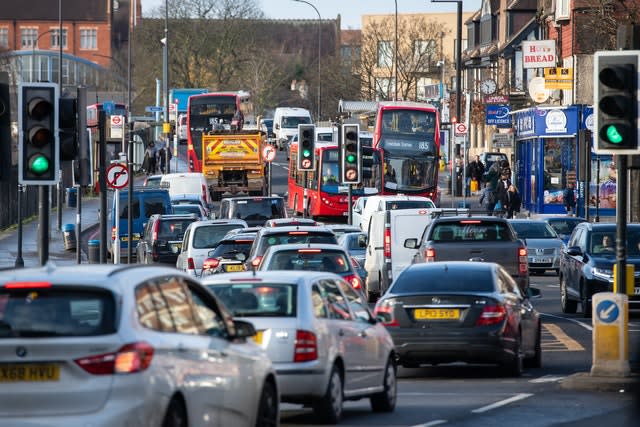The role of air pollution in Ella Kissi-Debrah’s death: key questions answered
A landmark ruling has found air pollution contributed to the death of nine-year-old Ella Kissi-Debrah who suffered a fatal asthma attack in 2013.
– What happened to Ella?
The London schoolgirl, who lived 25m from the busy South Circular road in Lewisham, was an active and healthy baby, according to her mother, but in the thee years before her death she suffered multiple seizures and was in hospital 27 times.
She was seen by consultants at six hospitals in the years before her death and had tests for epilepsy, but doctors eventually concluded her condition was purely respiratory.

In February 2013 she was rushed to hospital but died from a fatal asthma attack. She was nine years old.
– What did the inquest say about her death?
The first inquest in September 2014 was heard at Southwark Coroner’s Court by assistant coroner Phillip Barlow, who recorded the cause of death as acute respiratory failure caused by severe asthma.
After air pollution came to greater prominence as an issue, Ella’s mother Rosamund Kissi-Debrah launched a legal fight with the help of Hodge Jones & Allen Solicitors over concerns her daughter’s health may have been affected by pollutants, and the impacts they might be having on other children.
In 2019, the first inquest was quashed by the High Court following new evidence about the dangerous levels of air pollution close to her home.
Ruling in the second inquest, Mr Barlow gave the medical cause of death as follows: “I intend to record 1a) acute respiratory failure, 1b) severe asthma 1c) air pollution exposure.”
He said the principle source of the pollution she was exposed to was traffic emissions.
He also said there had been recognised failures to cut a key pollutant to legal limits during the time Ella was ill, and that her mother was not given information on pollution that could have led her to take steps that might have saved her daughter’s life.
– Why is it a landmark ruling?
While air pollution is linked to tens of thousands of early deaths a year, this is thought to be the first time it has been recorded as a cause of death on a death certificate in the UK.
The family, their lawyers, medical experts and campaigners say it highlights the need for action to tackle air pollution, which can trigger strokes, heart and asthma attacks, cause cancer, stunt children’s lung growth, and has been linked to damage to children’s learning, and dementia in older people.
– What is the problem with air pollution levels?

Key pollutants are nitrogen dioxide, which comes from sources such as traffic fumes, and particulate matter or PMs which come from a range of sources including vehicles.
While levels of the pollutants have fallen in recent years, 33 out of 43 air quality zones across the UK still have levels of nitrogen dioxide that are above legal limits that should have been met by 2010, analysis by environmental lawyers ClientEarth has found.
Levels of PMs are above the guideline limits recommended by the World Health Organisation.
– What can be done to curb pollution?
With traffic a key cause of pollution in towns and cities, campaigners want to see more encouragement of active travel such as walking and cycling, including e-bikes, and the introduction of clean air zones, which charge motorists for driving more polluting vehicles in certain areas.
Longer term the switch to electric vehicles, including buses, will help clean up the air, although particulate matter is still created by tyres and brakes.
– What happens next?
The coroner has asked the interested parties in the inquest, who include The Department for Environment, Food and Rural Affairs (Defra), the Department of Health, the Department for Transport, Transport for London, the Mayor of London’s Office and Lewisham Council, to contribute further submissions by mid-January for a Prevention of Future Deaths report.
The report will set out steps that should be taken to prevent other people suffering the same fate as Ella.
There is also likely to be growing pressure on the Government to adopt the stricter World Health Organisation pollution guideline limits in the wake of the ruling, lawyers suggest.
The Government has said it will set legally binding targets for fine particulate matter or PM2.5, the most harmful pollutant, alongside a further long-term air quality target under the new Environment Bill.
A number of councils are also due to bring in clean air zones, though some have been delayed by the pandemic.

 Yahoo News
Yahoo News 